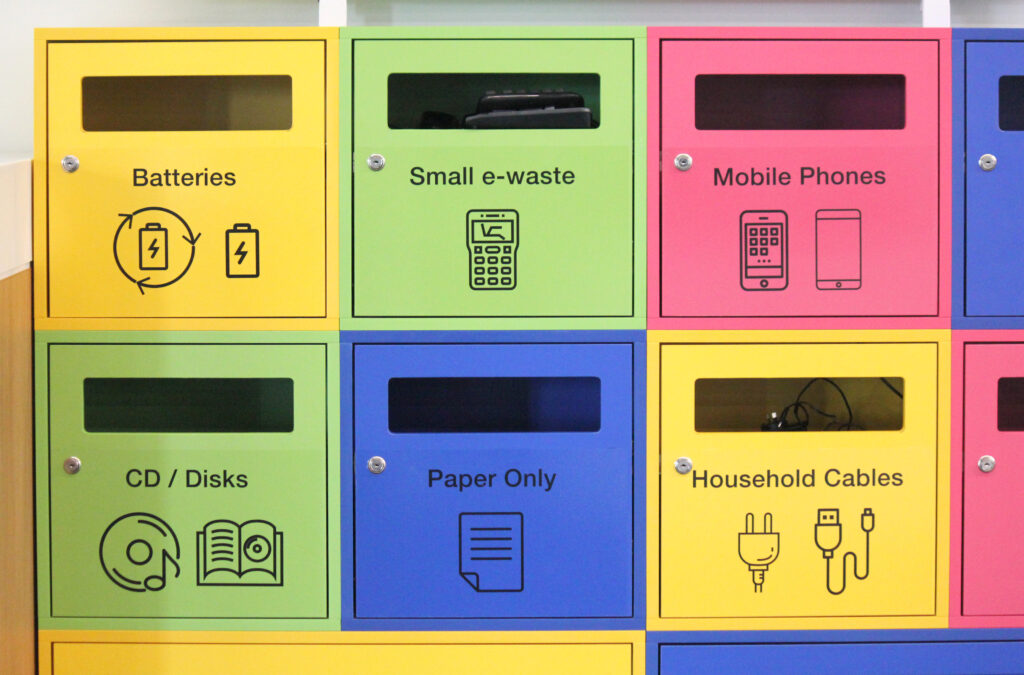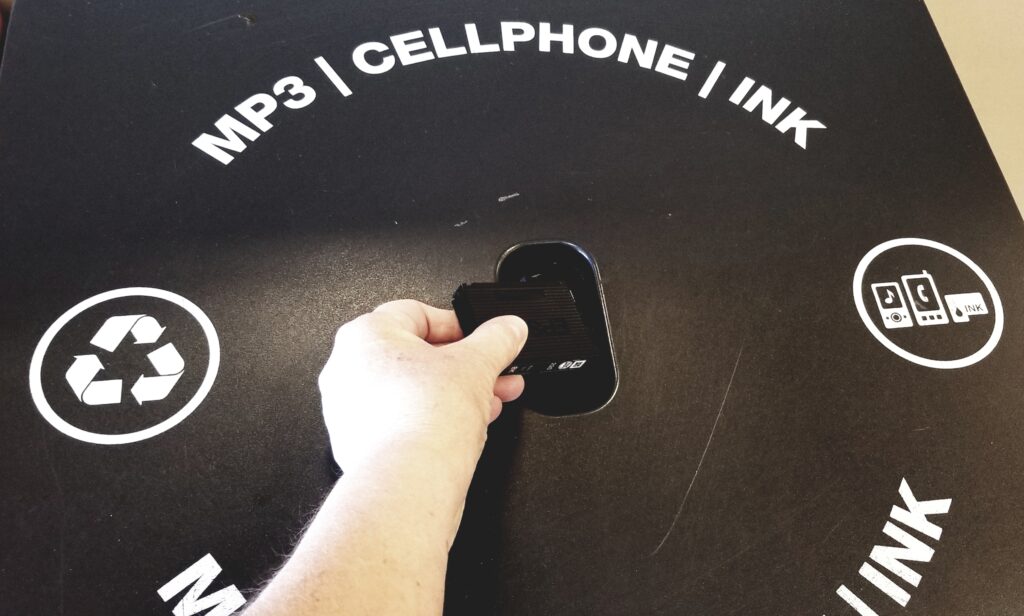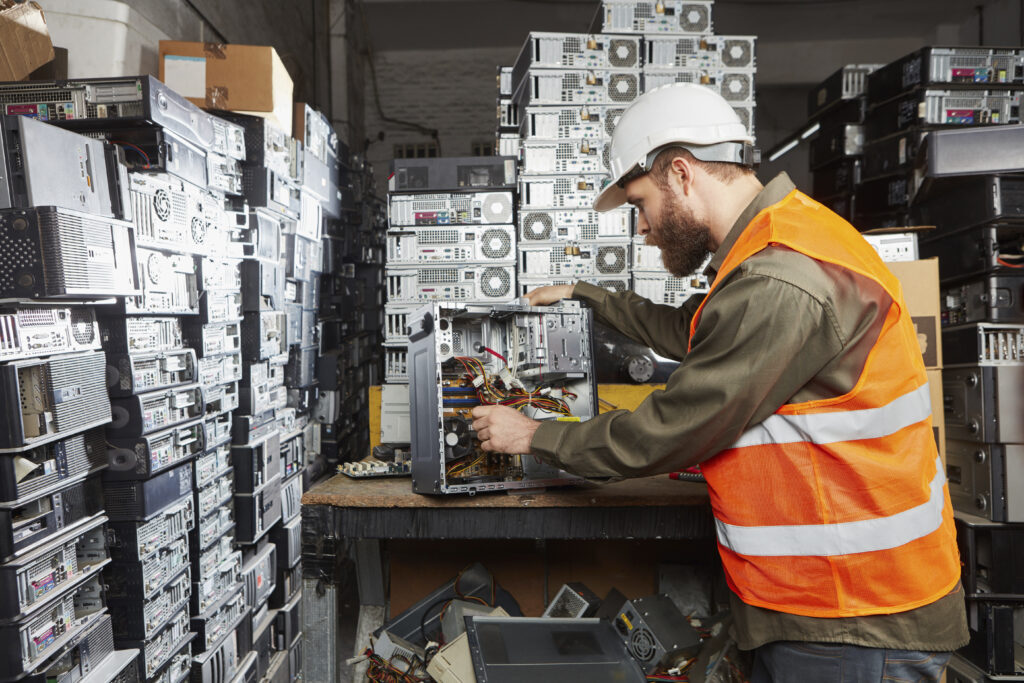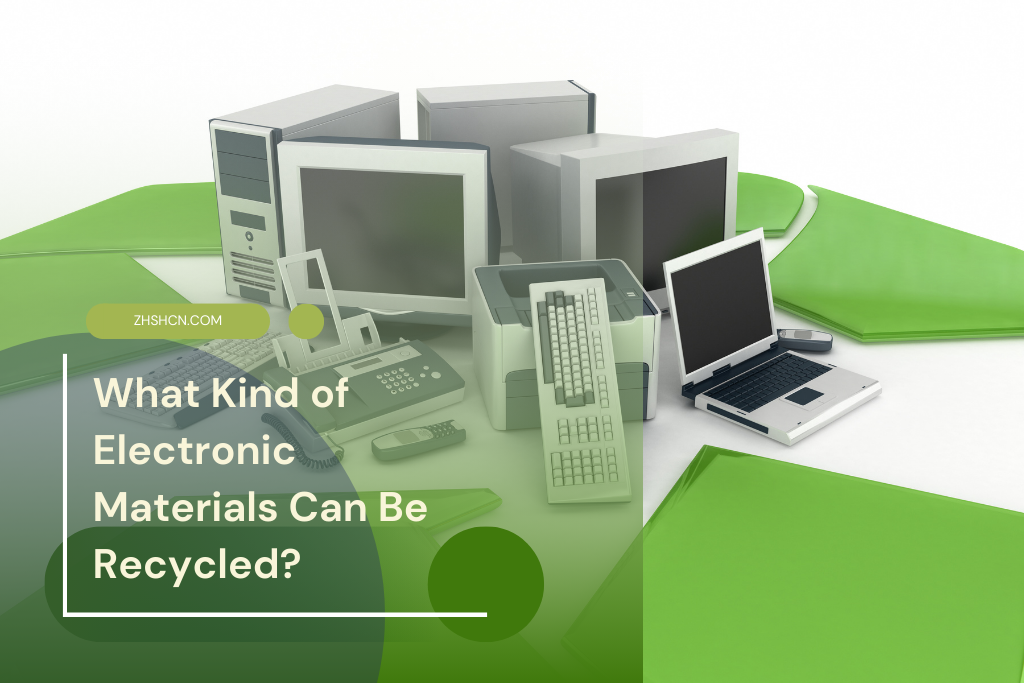Recycling is crucial in conserving our planet’s resources and minimizing waste. When it comes to electronics, a commonly asked question is, “What kind of electronic materials can be recycled?” From the vast array of gadgets in our homes and workplaces to their intricate components, understanding the recycling options available can lead to more sustainable choices.

Key Takeaways:
- Electronic devices contain recyclable materials like metals, plastics, glass, and circuit boards.
- Recycling electronics can reduce environmental impact and recover valuable resources.
- Specialized facilities are often required for electronic recycling due to electronic components’ complexity and potential hazards.
- Availability and guidelines for recycling might vary by region, so checking with local entities is essential.
Understanding Electronic Recycling Acceptable Items
Metals
Many electronics, such as smartphones, laptops, and TVs, are rich in metals like aluminum, copper, gold, silver, and platinum. These metals, once extracted, can serve various purposes in new products.
Plastics
Certain plastics like ABS and PC are common in electronic items. While these can be recycled, it’s vital to acknowledge that not every plastic in electronics is recyclable. Some might contain harmful chemicals that need special disposal methods.
Glass
Older CRT monitors and TVs utilized significant amounts of glass which can be recycled. However, modern displays like LCD/LED monitors typically use less glass.
Circuit Boards
PCBs present in most electronic devices contain valuable metals that can be recovered through recycling.
Batteries
Batteries, especially lithium-ion ones in laptops and phones, can be recycled to reclaim materials like lithium, cobalt, and nickel.
Cables and Wires
These often contain copper and aluminum, which are recyclable for their metal content.
Electrical Components
Components such as transformers and capacitors contain recyclable materials like copper and aluminum.
E-Waste
E-waste encompasses old electronics that can be recycled to retrieve valuable materials, thereby reducing environmental harm.

Printers and Ink Cartridges
Many printer parts and used ink cartridges can be recycled, with some manufacturers even having dedicated recycling programs.
Power Adapters and Chargers
Their components, like wires and metal connectors, can be recycled.
Why Electronics Recycling is Important
Recycling electronics conserves resources and prevents the release of harmful materials into the environment. Here’s a table highlighting its importance:
| Benefits of Electronics Recycling | Impact |
|---|---|
| Conserves Natural Resources | Saves energy and reduces the need to mine new raw materials. |
| Prevents Pollution | Reduces the amount of harmful chemicals released into the atmosphere and waterways. |
| Generates Employment | Recycling industries create many job opportunities. |
| Reclaims Valuable Materials | Precious metals and other resources can be reused in new products. |
Best Way to Recycle Electronics
The best approach to recycling electronics is to:
- Research: Determine local recycling facilities and their guidelines.
- Data Security: Ensure all personal data is removed from devices before recycling.
- Use Manufacturer Programs: Many companies offer take-back or trade-in programs.
- Donate: Working electronics can be donated to schools, nonprofits, or community centers.
Where Can We Recycle Electronics?
Most regions have local recycling centers or programs. Below is a list of common electronics and their typical acceptance in recycling programs:
- Laptop computers
- Cellphones
- Tablets
- Desktop computers
- Servers
- Crt monitors
- LCD/LED monitors
- Crt televisions
- Plasma TVs
- Lcd/led TVs
- Rear projection TVs
- Photocopiers
- Desktop printers
- Thermal printers
- Multifunction printers (MFP)
- Uninterrupted power supplies
- Toner and ink cartridges
- Professional av equipment
- Mixed cables
- Mixed batteries
- Fax machines
- Mice and keyboards
- Home theatre
- Stereo systems
- Electronic accessories
- Network equipment

Frequently Asked Questions
Q: Can all electronic devices be recycled?
A: Not all devices can be recycled fully. However, many contain parts that can be reclaimed.
Q: Is it safe to recycle electronics with personal data?
A: Before recycling, ensure personal data is erased, or devices are reset to factory settings.
Q: Can damaged electronics be recycled?
A: Yes, even non-working electronics contain recyclable materials.
In conclusion, electronic recycling conserves valuable resources and protects our environment. Knowing what materials can be recycled and how to use it is the first step towards a more sustainable future.
